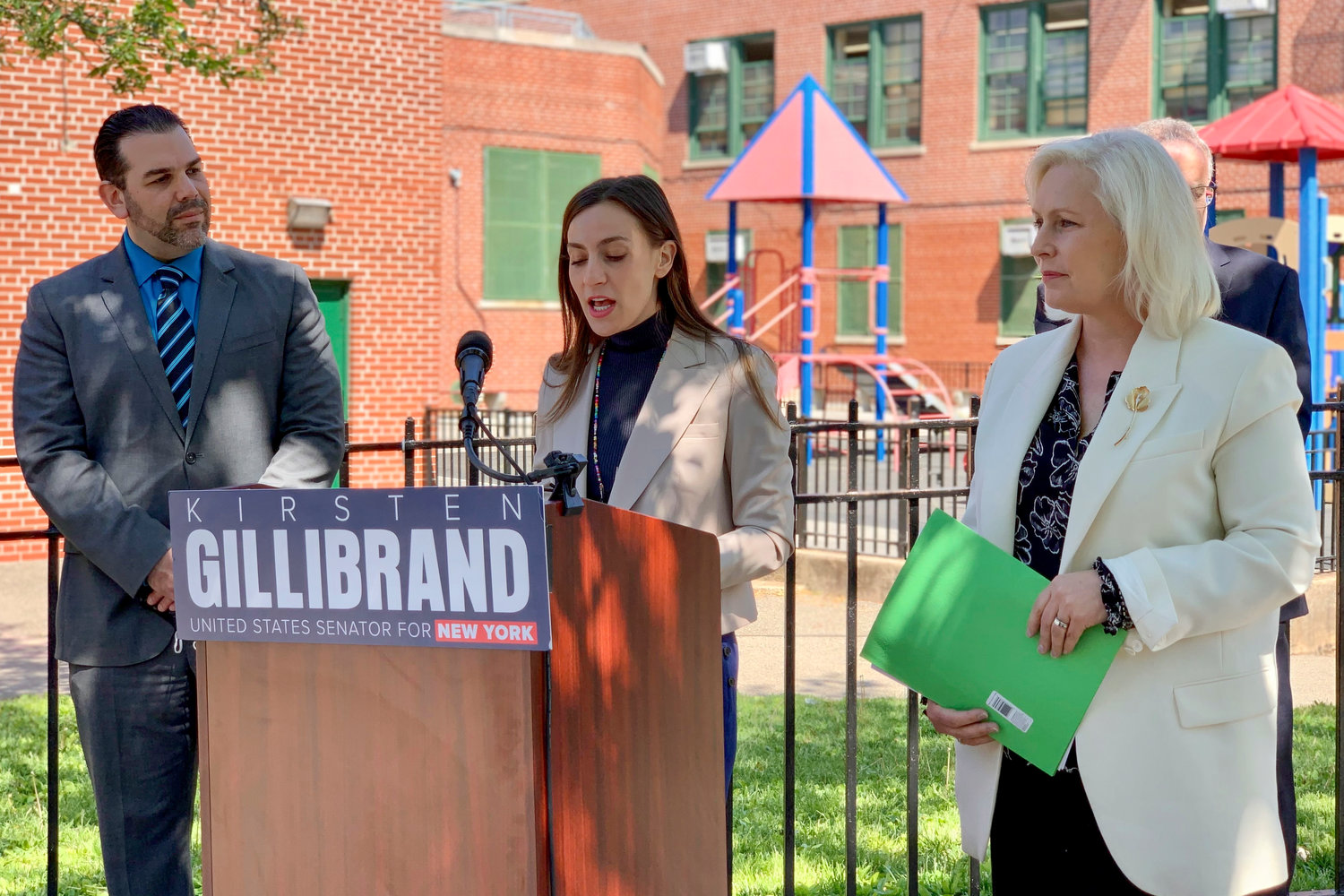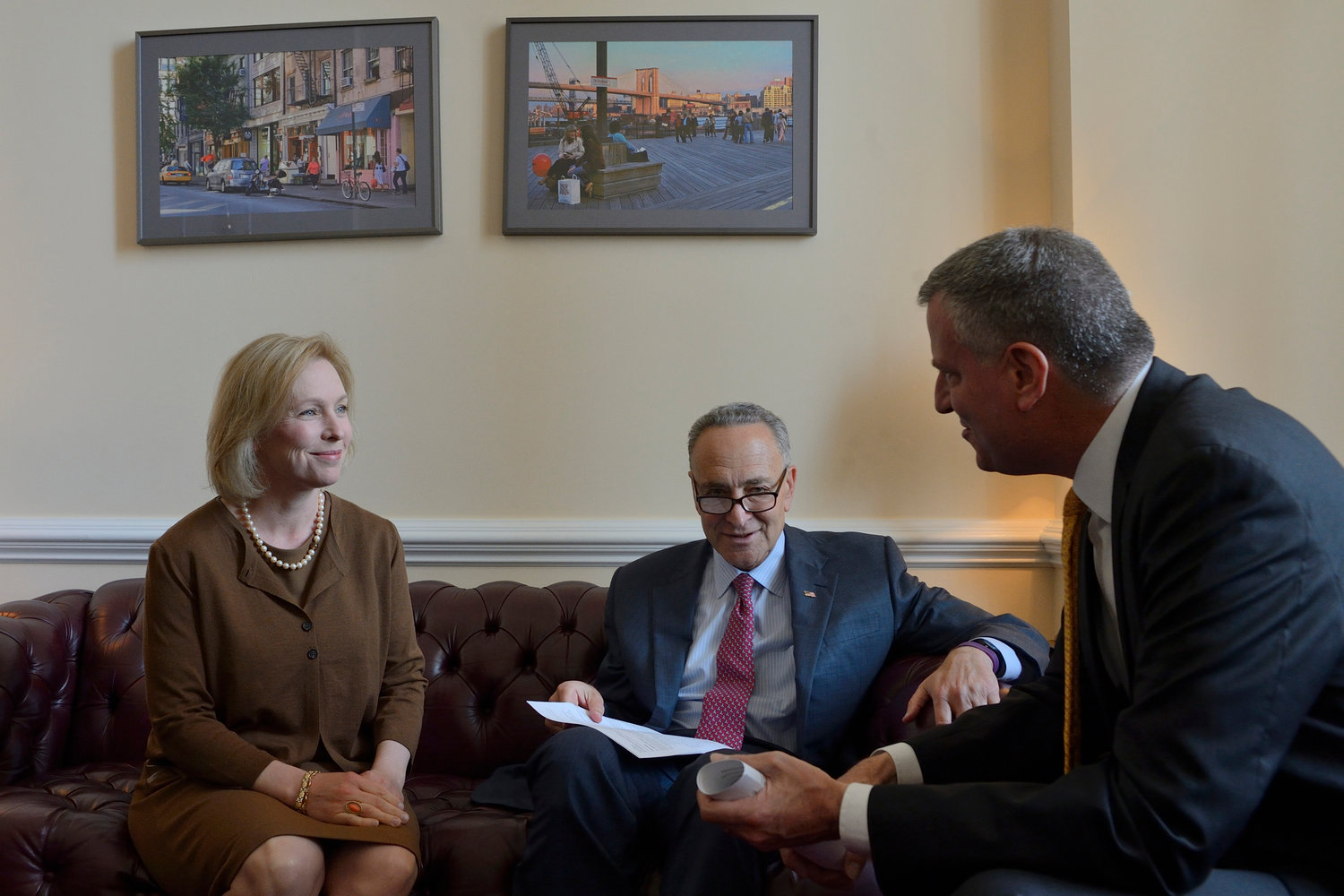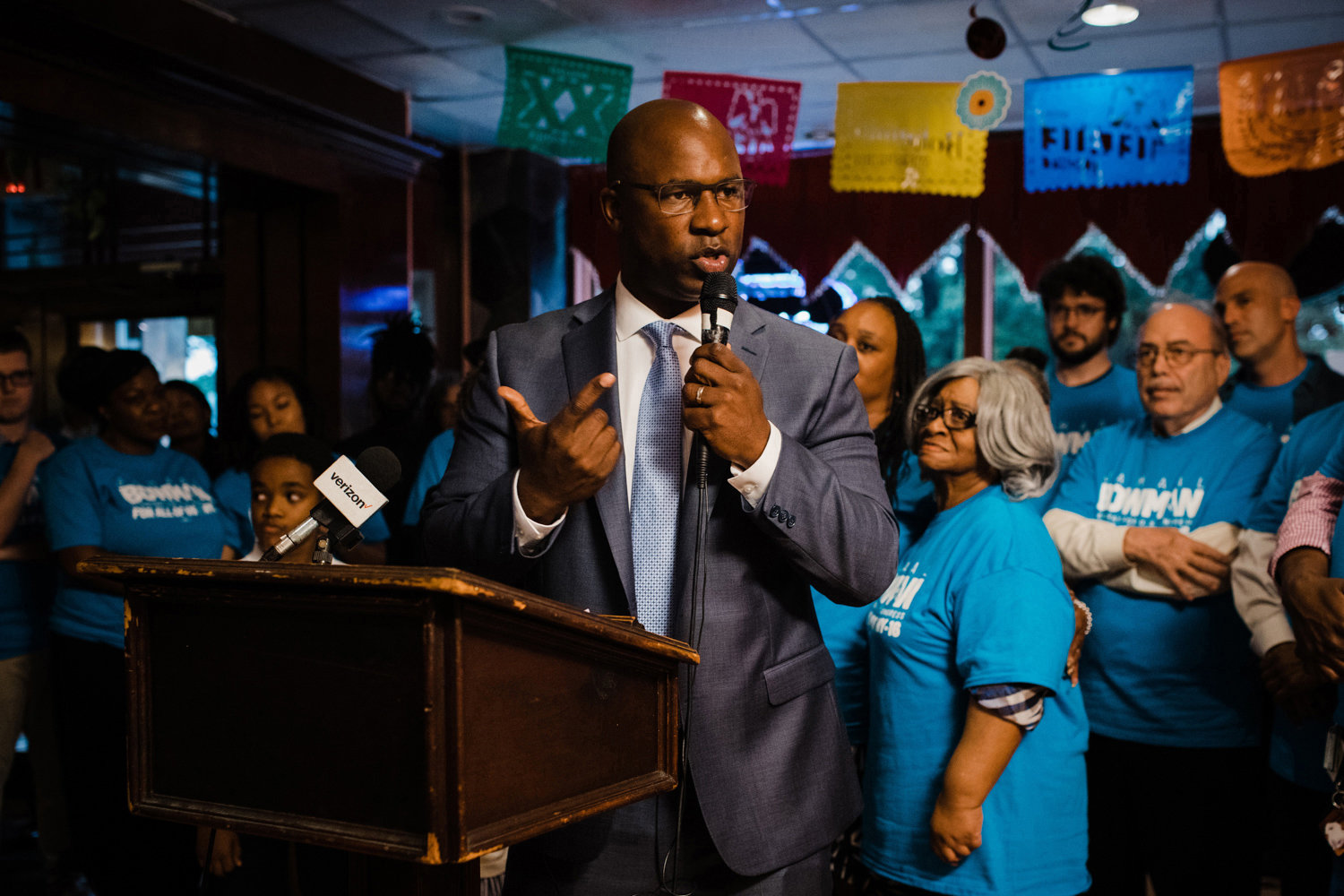Feeding the world, especially the children
Universal School Meals Program Act could provide three squares a day, every day
Some may not have the fondest memories of school cafeteria food. But like it or not, it’s essential to many in the city’s public school system.
And a recent piece of legislation introduced by New York lawmakers aims to recognize just how vital they are.
U.S. Sen. Kirsten Gillibrand and U.S. Rep. Jamaal Bowman joined other electeds visiting this side of the Bronx last week introducing Gillibrand’s Universal School Meals Program Act of 2021, which seeks to direct the U.S. Department of Agriculture to provide free school meals through the 2021-22 academic year — permanently.
If the bill passes Congress and is signed into law by President Biden, it would provide free breakfast, lunch and dinner — along with snacks — to all public school students regardless of socioeconomic status. It also would eliminate school lunch debt and encourage the use of locally sourced food in these school-provided meals.
“In New York City, we have seen that providing universal school meals makes an incredible difference to students and their families,” Gillibrand told reporters last week. “This bill will help New York City schools expand and strengthen existing school meals programs and ensure that no parent has to worry about where their child’s next meal is coming from.”
The not knowing seems to be a problem citywide. Former HUD secretary and mayoral candidate Shaun Donovan recently took issue with the city’s decision to eliminate snow days from the school calendar, saying many students rely on the schools to eat. That can’t happen if classes are held remotely those days, and there would be no makeup day to catch those missed meals.
“Nearly three-quarters of (city) students rely on free or reduced-price lunch, meaning that a snow day isn’t just a day off from learning, it’s a day off from nutritious food,” Donovan said earlier this month, in a release. “This is the exact reason that snow days are rarely used in the first place.”
The coronavirus pandemic exacerbated many problems that already existed prior to its arrival — including access to food for many of the city’s children. And according to Bowman, it will continue to be a problem long after the pandemic is history, unless Congress passes Gillibrand’s bill.
“Even when this pandemic is over, millions of kids are still going to lack access to the healthy food they need to survive,” Bowman said. “That is why we must make the USDA’s emergency school meals waiver permanent and expand it, so that all kids in New York state — and across the country — can get the nutrition that will allow them to stay healthy, focus in school, and just to be kids without hunger following them everywhere they go.”
Steven Schwartz’s school, P.S. 24 Spuyten Duyvil, hosted the news conference. The principal said the USDA’s emergency school meals waiver was helpful for many families at P.S. 24. And while the next academic year might not be as challenging as this one, Schwartz hopes some sort of meal service will still be provided.
“Although we are in a much better place due to the resiliency of our community,” Schwartz told The Riverdale Press, “one of the things that we should not be concerned about going into the next school year — when we have so many challenges ahead of us — is when children are going to get their next meal, and where they’re going to get it from.”
The immediate consequence of missing a meal, of course, is hunger. But there are many other adverse effects longer term — especially to school children. Schwartz believes ensuring kids have access to those meals can help eliminate at least a few of those day-to-day problems.
“I have not missed too many meals in my life, but when I have missed a meal, I know I’m not my best me,” Schwartz said.
“So if we really are expecting children to be able to be resilient and to perform at the levels that we know they can be, we have to make sure we’re doing our part and making sure they have proper nutrition in their system.”
The Universal School Meals Program Act might have a long way to go through Congress — especially with many Republicans expected to be opposed — but there are a few community organizations helping families get along with food and nutrition for the time being.
One of them is Part of the Solution — or POTS — which provides immediate food relief to families in need, among other services.
The group’s executive director, Christina Hanson, believes no one should go hungry, but it’s especially important for children’s growing bodies to have access to meals and nourishment.
“It’s well documented that children are much better off learning if they have the food they need,” Hanson said. “Making sure that our schools have the resources to support our children — through having excellent teachers, or through making sure there is available food for everyone who might be experiencing struggle at home — is a very important way of ensuring our children will grow up strong.”
The past year has been difficult for so many. Hanson believes having schools provide meals for children morning, noon and night will take just one thing off of the plates of many families who make difficult decisions just to survive.
“Families that are struggling with food insecurity … are always doing everything they can to make sure that their kids have access to the food they need, and have to make really difficult compromises in order to make that happen,” Hanson said. “Maybe not paying rent. Maybe having less nutritious food.
“Making it possible for families to feed their children without having to make those kinds of compromises is just a really important value.”














